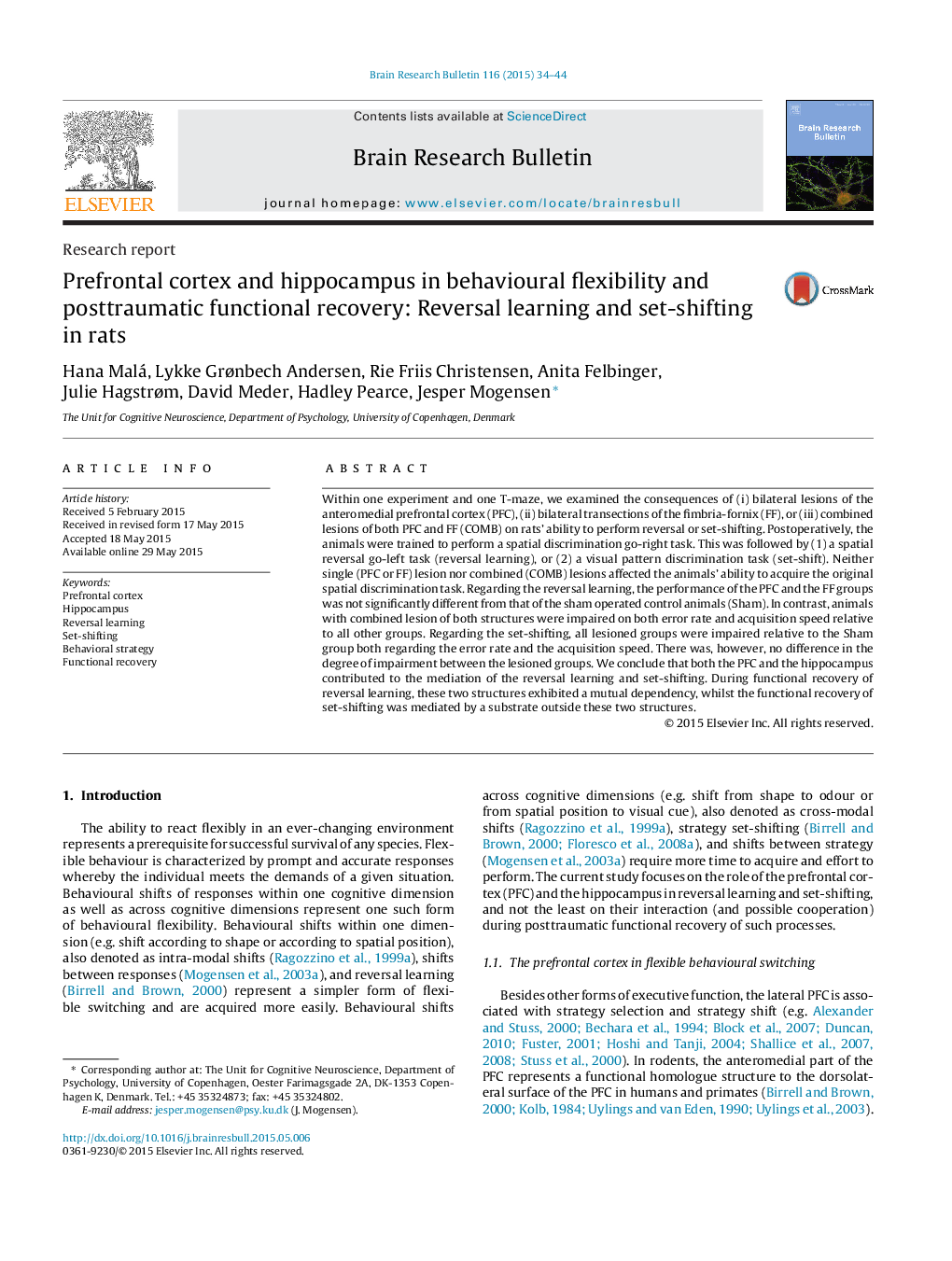| Article ID | Journal | Published Year | Pages | File Type |
|---|---|---|---|---|
| 4318767 | Brain Research Bulletin | 2015 | 11 Pages |
•Isolated lesion of PFC did NOT impair reversal learning.•Combined lesion of both structures DID impair reversal learning.•PFC and hippocampus ARE interdependent in recovery of reversal learning.•Lesions of PFC and/or hippocampus EQUALLY impaired set-shifting.•PFC and hippocampus are NOT interdependent in recovery of set-shifting.
Within one experiment and one T-maze, we examined the consequences of (i) bilateral lesions of the anteromedial prefrontal cortex (PFC), (ii) bilateral transections of the fimbria-fornix (FF), or (iii) combined lesions of both PFC and FF (COMB) on rats’ ability to perform reversal or set-shifting. Postoperatively, the animals were trained to perform a spatial discrimination go-right task. This was followed by (1) a spatial reversal go-left task (reversal learning), or (2) a visual pattern discrimination task (set-shift). Neither single (PFC or FF) lesion nor combined (COMB) lesions affected the animals’ ability to acquire the original spatial discrimination task. Regarding the reversal learning, the performance of the PFC and the FF groups was not significantly different from that of the sham operated control animals (Sham). In contrast, animals with combined lesion of both structures were impaired on both error rate and acquisition speed relative to all other groups. Regarding the set-shifting, all lesioned groups were impaired relative to the Sham group both regarding the error rate and the acquisition speed. There was, however, no difference in the degree of impairment between the lesioned groups. We conclude that both the PFC and the hippocampus contributed to the mediation of the reversal learning and set-shifting. During functional recovery of reversal learning, these two structures exhibited a mutual dependency, whilst the functional recovery of set-shifting was mediated by a substrate outside these two structures.
